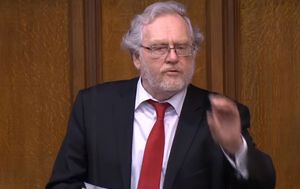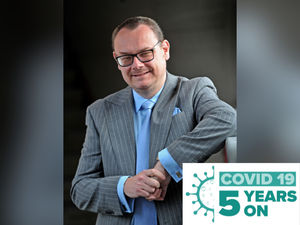Ministers urged to move away from 'all or nothing' lockdown approach
Ministers have been told to shift away from the "all or nothing" approach to lockdown when the current one ends next month.

Labour MP John Spellar said MPs from across the House were keen to "move on from risk avoidance to evidence-based risk management" when it came to controlling the virus.
He said the possible renewal of lockdown measures after December 2 was "the most important issue facing the country", and urged the Government to allow for proper parliamentary scrutiny on any future lockdown plans.
Boris Johnson has insisted the current month-long lockdown will end at the start of December, with any extension requiring a parliamentary vote.
However, speculation is growing that Tory MPs may be ordered to back further national restrictions, while Labour could also support a short extension in the run up to Christmas.
Other reports suggest the country could return to the tiered system of measures, with areas of high infection rates such as parts of the West Midlands placed under the strictest restrictions.
Speaking in Business Questions, Warley MP Mr Spellar said: "Surely, in reality, the most important issue facing the country and This House is the renewal or otherwise of the lockdown.
"I'm surprised and slightly concerned - it is not clear when this will be debated. Because many MPs – on all sides – want to move on from risk avoidance to evidence-based risk management.
Focused
"Many sporting and leisure venues have invested in helpful and costly improvements.
"Whether they be football and rugby clubs, racecourses, betting shops, bingo halls, casinos, airports, shops, gyms, pubs, clubs, restaurants and cafes – they all need some degree of change, some degree of help and some actual opportunity.
"So, can we have an urgent focused debate and a vote on proper alternatives – and not the usual 'all or nothing', 'take it or leave it' approach?"
In response, Leader of the Commons Jacob Rees-Mogg, said Mr Johnson was "the most freedom-loving PM in at least 100 years", who had a "very strong desire" to get back to "ordinary ways of living".
He added: "I can assure him that the Government has made a commitment that any matters of national significance will be brought before This House before they are introduced."





